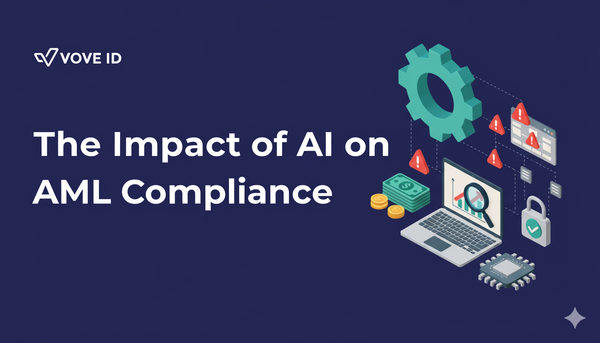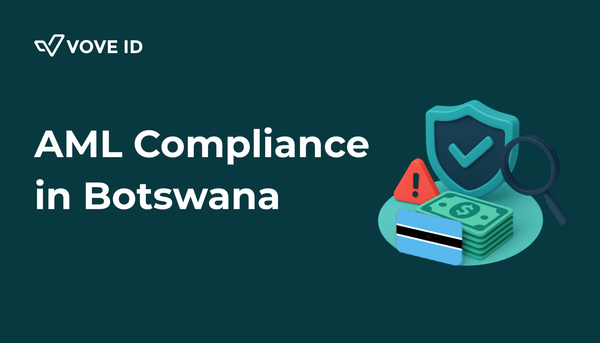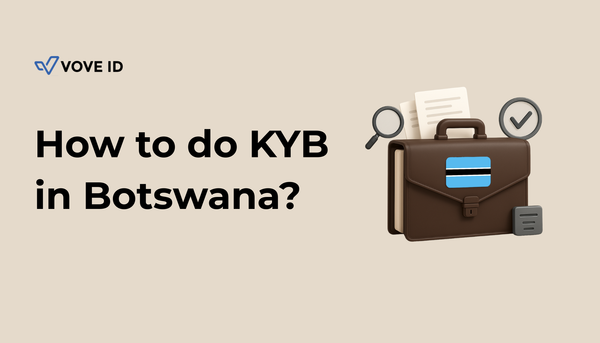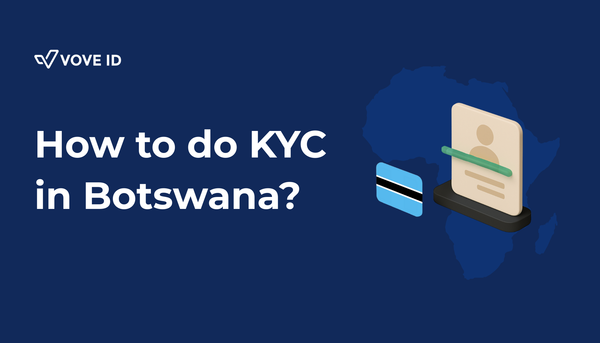How KYB Should Be Handled in 2025: Modern Compliance for Global Businesses
Discover how KYB (Know Your Business) is evolving in 2025. Learn modern best practices, regulatory expectations, and digital tools shaping business verification and compliance worldwide.
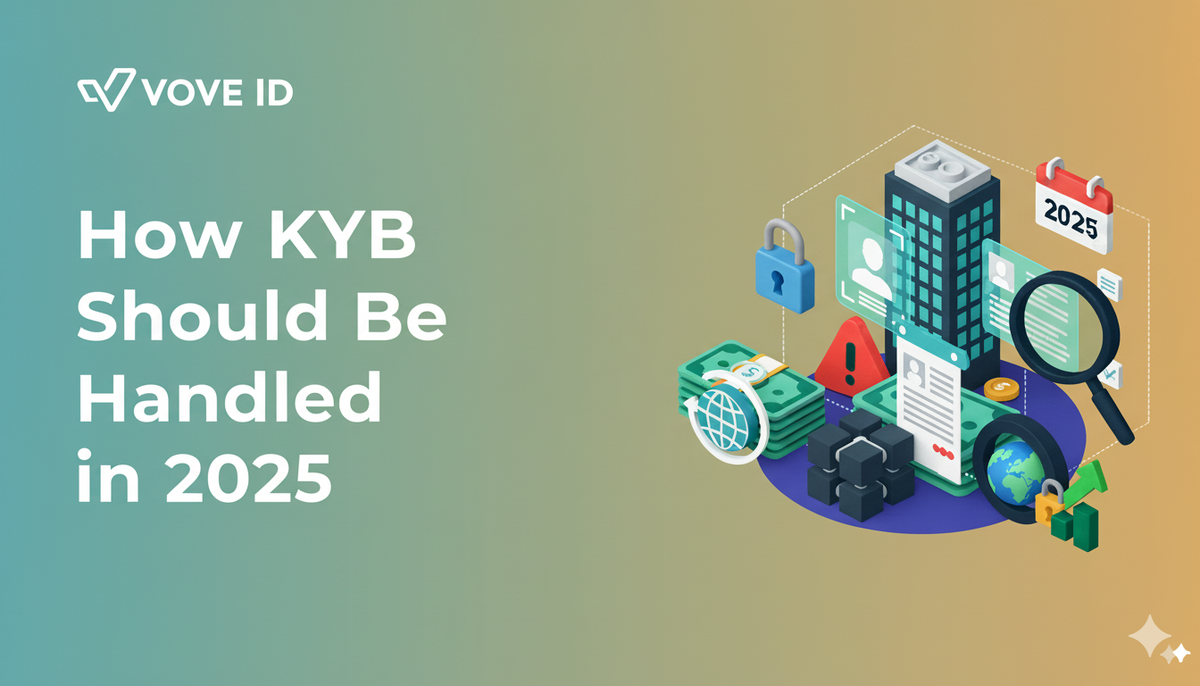
In today’s digital economy, trust is currency. Businesses are forming partnerships faster than ever, often across borders, industries, and regulatory systems. But this speed also brings risk: shell companies, hidden ownership structures, and fraudulent entities can slip through the cracks if due diligence is outdated or inconsistent.
That is why Know Your Business (KYB) has become a cornerstone of modern compliance frameworks. More than a regulatory requirement, KYB is now a strategic enabler of safer growth. Companies that treat KYB as an investment in trust are better equipped to scale securely.
The Shift in KYB Expectations
Until a few years ago, KYB was often a manual process. Compliance teams gathered incorporation papers, checked local registries, and verified directors using spreadsheets and scanned PDFs. The approach was slow, fragmented, and prone to errors.
In 2025, this is no longer enough. Regulators worldwide, guided by Financial Action Task Force (FATF) recommendations, expect institutions to go beyond onboarding checks and adopt continuous monitoring. Ultimate Beneficial Ownership (UBO) transparency is under sharper scrutiny. And new regulatory frameworks in regions like the EU, UK, Africa, and the Gulf states are aligning more closely with global AML standards.
Businesses are expected to:
- Verify legal existence using trusted registries.
- Identify UBOs to ensure no hidden actors are involved.
- Screen against sanctions and PEP lists regularly, not only at onboarding.
- Monitor transactions and behavior to spot anomalies.
The bar has been raised: KYB is no longer an occasional file review, but an ongoing compliance obligation.
Regional Adaptations in KYB
While global principles of KYB stem from FATF recommendations, regional regulators are adapting these standards to local realities.
- In East and West Africa, countries like Nigeria, Ghana, and Kenya are strengthening company registry systems and aligning AML laws with FATF to attract more foreign direct investment. Digital verification of businesses is becoming a regulatory expectation, especially in fintech and mobile money sectors.
- In the Gulf states, regulators such as the Central Bank of the UAE and the Saudi Central Bank mandate robust KYB frameworks for banks, fintechs, and payment providers. The UAE has introduced mandatory UBO disclosures, while Saudi Arabia has integrated KYB into its broader Vision 2030 push for financial transparency.
This regional momentum reflects a broader global push toward transparency, making KYB a shared compliance language across markets.
The Challenges Businesses Face
Despite the growing importance of KYB, companies still face persistent challenges:
- Fragmented data sources – In many regions, corporate registries are incomplete, inconsistent, or not digitized. Verifying businesses across multiple jurisdictions requires both local expertise and global tools.
- UBO transparency – Criminal networks often use layered ownership structures, trusts, or nominee directors to obscure real control. Identifying UBOs is one of the most complex aspects of KYB.
- Onboarding vs. speed – Customers expect instant onboarding, yet compliance teams must verify documents and perform risk checks. Striking a balance between fast onboarding and thorough due diligence is a constant tension.
- Rising regulatory scrutiny – Non-compliance now carries higher costs: reputational damage, fines, and even loss of licenses in regulated industries.
The Cost of Non-Compliance
Ignoring KYB obligations is no longer a minor oversight. Regulators are issuing heavier penalties worldwide.
- In 2023, the UK’s Financial Conduct Authority (FCA) fined a major financial institution over £100 million for AML failures, including inadequate KYB checks.
- The UAE has introduced fines of up to AED 5 million (≈USD 1.36 million) for firms that fail to maintain proper UBO records.
- In Africa, regulators are also stepping up: in Nigeria, fintechs risk losing their licenses if they onboard corporate clients without meeting KYB standards.
These examples underline that KYB lapses are not just regulatory risks—they can threaten the survival of a business.
What Modern KYB Should Look Like
A strong KYB framework in 2025 should combine compliance rigor with operational efficiency. That means integrating automation, data intelligence, and risk-based strategies into every stage of business verification.
Key pillars include:
- Automated data collection: Connecting directly with national registries and trusted sources to fetch business details in real time.
- UBO verification: Mapping ownership structures, verifying identities of beneficial owners, and screening them against sanctions and watchlists.
- Ongoing monitoring: Using automated alerts to track changes in company status, director appointments, or adverse media.
- Risk-based approach: Tailoring the depth of checks to the risk profile of the business (e.g., a local vendor vs. a cross-border crypto exchange).
- AI-driven insights: Applying machine learning to detect anomalies, potential shell structures, or suspicious behavior patterns.
This model not only meets regulatory demands but also reduces manual workload and accelerates onboarding.
The Role of Digital Identity and API Solutions
Technology is now central to KYB. Modern compliance platforms integrate digital identity verification and registry lookups into a seamless workflow. Instead of chasing documents via email, compliance teams can instantly confirm business legitimacy and the identities of UBOs.
Platforms like VOVE ID provide API-driven KYB solutions that:
- Pull data from official corporate registries.
- Verify directors and shareholders using biometric or digital identity checks.
- Screen entities against sanctions, PEPs, and adverse media databases.
- Support ongoing monitoring, not just one-time verification.
This is particularly valuable for industries like fintech, crypto, digital wallets, iGaming, and gig-economy platforms, where onboarding speed is critical but regulatory risk is high. By integrating KYB into digital onboarding flows, businesses can scale faster while staying compliant.
Looking Ahead: KYB in 2025 and Beyond
KYB will only become more central to global commerce. Three trends stand out for the future:
- Global interoperability – As regulators harmonize standards, businesses will benefit from more consistent data across borders. Expect greater international cooperation on UBO registries and AML intelligence sharing.
- Corporate transparency – Governments are pushing harder for open registries and stricter penalties for hidden ownership. FATF evaluations continue to pressure jurisdictions to improve transparency.
- KYB as a growth enabler – Businesses that invest in digital KYB will gain competitive advantages: faster partner onboarding, stronger fraud protection, and smoother regulatory audits.
In short, KYB is shifting from being a defensive tool to a proactive growth strategy.
❓FAQ: Modern KYB Explained
What’s the difference between KYC and KYB?
KYC focuses on verifying individual customers, while KYB verifies the legitimacy of businesses and their owners. Both are part of AML compliance.
Why is UBO verification so critical?
Because shell companies are often used to hide illicit activity. Verifying UBOs ensures regulators and businesses know who is really in control.
Do all industries need KYB?
While financial services are under the most pressure, any business working with corporate clients, especially in fintech, crypto, and digital platforms, needs KYB to reduce risk and meet compliance requirements.
According to the United Nations Office on Drugs and Crime (UNODC), up to 40% of money laundering cases worldwide involve shell companies or corporate structures that hide beneficial ownership. This is why regulators emphasize KYB and UBO checks as central tools against financial crime.
Conclusion
KYB has evolved from a compliance formality into a critical enabler of trust, transparency, and sustainable growth. In 2025, businesses can no longer afford outdated, paper-based approaches. Modern KYB means automated data collection, UBO verification, ongoing monitoring, and digital identity integration.
Solutions like VOVE ID make this transformation possible, giving businesses the tools to comply with global standards while onboarding partners and clients quickly and securely.
Handled properly, KYB is not just about meeting regulations, it’s about building a business environment where growth and trust go hand in hand.

